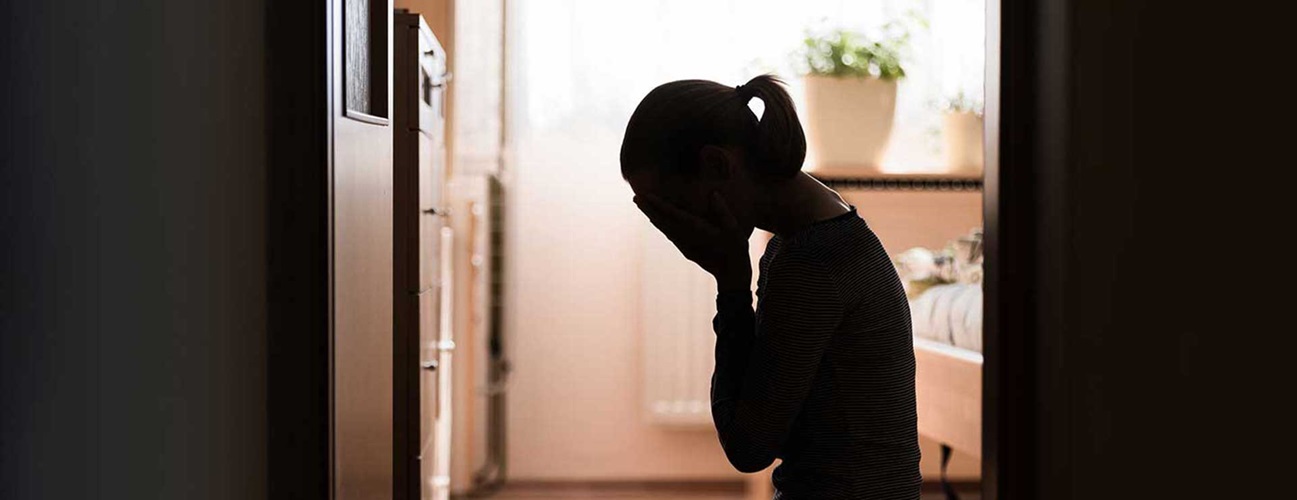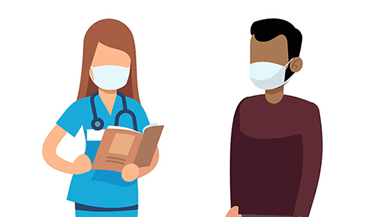Coronavirus and Domestic Violence: What You Should Know
Featured Expert:
The coronavirus pandemic has resulted in domestic partners and families spending more time together at home. Not surprisingly, being in such close proximity for extended periods of time has resulted in higher stress levels. That raises a concern: Are people in the same households more likely to intimidate or physically hurt one another?
Researcher Jackie Campbell of Johns Hopkins’ School of Nursing answers questions on spousal abuse and other domestic violence in light of COVID-19-related stress.
Is coronavirus causing more domestic violence?
We don't have a lot of evidence that the rate of domestic violence incidence is going up during the COVID-19 pandemic. However, there is a little bit of evidence that the rate of murder-suicide, in which a male partner kills a female and then himself, has risen since the same time last year.
If domestic abuse is already a problem in a relationship, the coronavirus pandemic might be making it worse. An abusive person may use this situation to exert more control over a partner.
What makes physical abuse more of a risk during coronavirus?
Even with stay-at-home orders lifting and areas reopening, there is still an increase in stressors as a result of the pandemic. Schools remain closed, and camps and activities are canceled, so kids are at home. Families may feel crowded, frustrated that they can’t escape one another. At the same time, they’re isolated from extended family and friends and can no longer participate in many enjoyable and relaxing activities.
There’s also the threat of COVID-19 itself. People are afraid of catching it, especially if they are essential workers and cannot work from home. Families may have a relative who has COVID-19 and requires hospitalization, but they can’t visit or provide support in person.
Financial stress can factor in, too, especially if someone in the home has been furloughed or laid off.
With all this happening, some families are likely to encounter more arguing. It's not clear if domestic violence would start for the first time under these circumstances. Someone who is normally nonviolent isn’t likely to suddenly start acting that way. But, if a person has been abusive in the past, they might become more violent because of the added stressors.
PTSD: A Risk Factor in Domestic Abuse
One factor in domestic abuse stems from post-traumatic stress disorder, or PTSD. Having PTSD raises the risk of being both an abuser and a survivor.
People who witness abuse — for example, those growing up in a violent family or neighborhood — might be living with PTSD. Combat veterans are at high risk for having PTSD, and for being violent toward family members.
One symptom is hypervigilance: patients describe feeling on edge, with a tendency to overreact to a perceived threat. A distressing event can trigger a person with PTSD and make them feel under physical attack, with a necessity to fight back.
There's not always one, horrific event, such as combat experience or a car accident, which causes PTSD symptoms; a lifetime of exposure to violent behavior can add up. Structural racism is also a cumulative trauma, if the person is enduring microaggression — subtle comments or actions that intentionally or unintentionally express prejudice toward a member of a historically marginalized group — or macroaggressions, clear comments or actions of prejudice over time.
Alcohol Use During COVID-19: A Risk for Domestic Violence
If household members are consuming more alcohol than usual due to stressors, they might be at higher risk for acting out and causing physical harm to family members.
The World Health Organization cites a strong correlation between alcohol and violence between intimate partners. They note that alcohol affects both body and mind, and can impair thinking and self-control. People who drink alcohol may be less capable of dealing with relationship conflicts without resorting to violence.
Webinar: The Emotional Toll of COVID-19
As part of A Woman's Journey webinar series, Johns Hopkins experts discuss PTSD, domestic violence and suicide in the context of the coronavirus pandemic.
What should I do to protect myself from domestic violence during the pandemic?
The National Domestic Violence Hotline, at 800-799-7233 (SAFE), can provide information and advice.
Look Out for Warning Signs
Put a plan together if someone you are living with is:
- being verbally or emotionally hurtful.
- threatening you.
- having episodes of explosive anger.
- harming animals.
Steps You Can Take to Keep Yourself and Others Safe
- Find a place you can retreat to safely. Avoid the bathroom or kitchen.
- Enlist support from a trusted friend or family member you can call.
- If necessary, use a code word or phrase to indicate you need help.
- Memorize phone numbers of people and agencies you might need to call in an emergency.
- Make sure you can easily access:
- cash.
- identification (Social Security card and driver’s license).
- birth and marriage certificates.
- credit cards, safe deposit box keys and bank information.
- health insurance information.
- any documentation, photos, medical or police reports relating to previous episodes of abuse.
Are there apps or interventions for domestic abuse?
If you are feeling unsafe but are unsure if someone you are living with is being abusive, apps may help provide some clarity on whether or not you are at risk.
MyPlan is an app for anyone having issues in a relationship, COVID-19 related or not. The app can help users determine if a partner’s behavior is showing signs of abuse. Also, users can get connected to resources personalized to their situation and their life priorities.
In-person interventions can work, too. Strength at Home is a program offered by the U.S. Veterans Administration to address the problem of veterans using violence against their domestic partners. It serves as a way to help address abusive behavior without demonizing the abuser. Random controlled trials have demonstrated that the program is effective.






